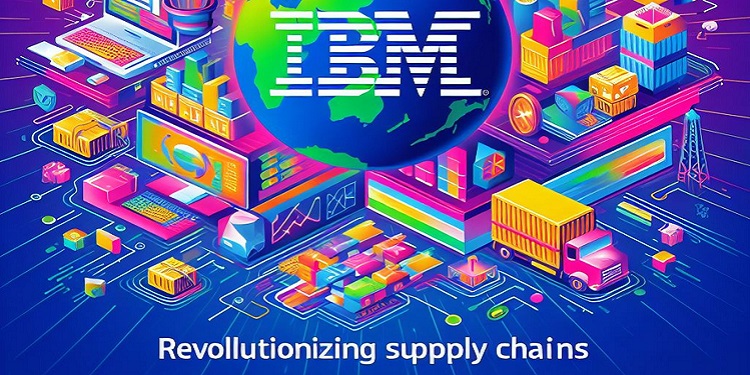In a groundbreaking development, IBM’s utilization of blockchain technology in supply chain management signifies a significant shift in the global supply chain landscape. This strategic decision leverages blockchain’s inherent features such as decentralization, transparency, security, and immutability to address the prevalent challenges in supply chain operations.
Improved Traceability and Transparency
By integrating blockchain, an immutable ledger is introduced to meticulously record every transaction and movement of goods throughout the supply chain. This meticulous traceability provides stakeholders with access to a single, authentic source of information, enhancing transparency and fostering trust among all involved parties.
Enhanced Efficiency and Accelerated Processes
IBM’s blockchain solution automates various supply chain processes through smart contracts, significantly reducing the time required for administrative tasks like document approvals and certifications. This automation not only speeds up transactions but also reduces the occurrence of human errors.
Strengthened Security and Unwavering Integrity
The decentralized nature of blockchain results in a distributed control mechanism that greatly enhances data security. Moreover, once transactions are recorded on a blockchain, they remain unchangeable, ensuring the integrity of supply chain data.
Significant Cost Savings
The integration of blockchain technology offers the potential for substantial cost savings in supply chain management. By eliminating intermediaries, reducing fraud and errors, and streamlining processes, businesses can achieve significant savings.
Compliance Facilitation and Standardization
IBM’s blockchain solution acts as a facilitator for businesses aiming to meet regulatory requirements more effectively. The technology securely stores compliance data, making it easily accessible for audit purposes and simplifying compliance procedures.
Real-world Applications Exploration
IBM is at the forefront of applying blockchain in supply chain management, collaborating with various sectors to implement customized solutions.
Ensuring Food Safety
An example of this is IBM’s Food Trust Network, where blockchain is used to meticulously track the journey of food products from production to distribution. This initiative has been crucial in quickly identifying and isolating sources of contamination, thereby enhancing food safety standards.
Combating Counterfeit Pharmaceuticals
In the pharmaceutical industry, blockchain serves as a powerful tool against counterfeit drugs by verifying the authenticity of pharmaceutical products throughout the supply chain.
Guaranteeing Ethical Sourcing and Combating Counterfeiting
Blockchain plays a key role in ensuring the ethical sourcing of minerals and combating counterfeiting in manufacturing and retail sectors.
Addressing Challenges Towards Implementation
Despite its transformative potential, integrating blockchain into supply chains poses significant challenges such as technical scalability, regulatory compliance, and the need for widespread adoption. Additionally, the effectiveness of blockchain relies on collaborative consensus among stakeholders, ranging from suppliers to end consumers.
Leading a New Era
IBM’s integration of blockchain into supply chain management signifies a paradigm shift, promising unprecedented levels of transparency, efficiency, and security. As technology advances and adoption increases, blockchain has the capacity to fundamentally redefine global supply chains, making them more resilient, ethical, and efficient. The ongoing efforts in blockchain development and deployment by IBM and its partners are set to drive innovation and enhancement in global supply chain management practices.

